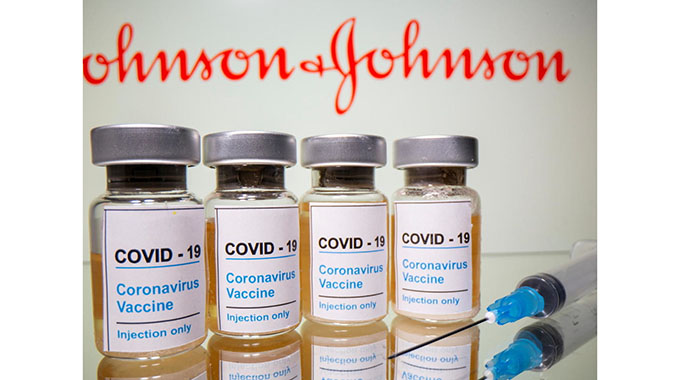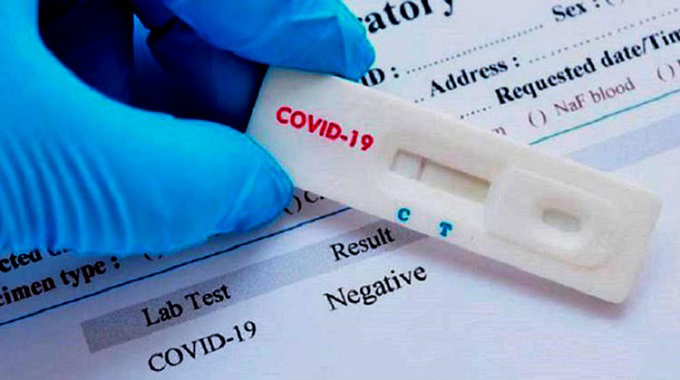Deal to send COVID-19 vaccines from South Africa to Europe dismantled

Sara Jerving
Following criticism over an agreement to ship Johnson & Johnson COVID-19 vaccines partially produced in South Africa to Europe — despite less than 3 percent of the African continent’s population being fully vaccinated — the deal has been suspended.
Doses that have already been sent to Europe will be shipped back to South Africa for distribution among member states of the African Union, said Strive Masiyiwa, special envoy to the AU, at a press conference Thursday.
“All the vaccines produced at Aspen will stay in Africa and will be distributed to Africa,” Masiyiwa said. “This issue has been corrected and it has been corrected in a very positive way.”
South Africa’s Aspen Pharmacare operates the plant that is partially producing Johnson & Johnson vaccines through the “fill and finish” process, where vaccine substance from Europe is sent to be bottled and shipped.
The plant is supposed to produce 400 million doses for the AU’s African Vaccine Acquisition Trust through 2022, to be purchased by African nations using financing from the World Bank. Shipments began in August, with 6.4 million doses delivered to countries. These shipments have been limited based on the manufacturing plant’s production capacity.
But an op-ed published in mid-August by former British Prime Minister Gordon Brown revealed that 10 million vaccine doses were slated for export to Europe in August and September. And an investigation from The New York Times found the contract between J&J and Aspen “required South Africa to waive its right to impose export restrictions on vaccine doses.”
“The Europeans have committed that we will continue to get the drug substance, as well as be allowed to keep all the production that comes from that drug substance. There will be no sharing.”— Strive Masiyiwa, special envoy, African Union
Ramaphosa — met with its European counterpart. Masiyiwa said that during these meetings, European Commission President Ursula von der Leyen said she had not previously been aware of the agreement to ship doses from South Africa to Europe and dismantled the arrangement.
Von der Leyen told the AU that vaccines already shipped to Europe would be sent back to South Africa, with an expectation that these shipments would begin this month. Less than 20 million doses were shipped to Europe, Masiyiwa said.
Because of this, the expected number of J&J doses the AU can ship to countries per month has increased. Countries previously expecting to receive about 10 million doses in September can now look forward to 20 million doses.
The Europeans also committed to providing enough drug substances from the J&J facility in the Netherlands to the Aspen facility for the 400 million doses expected by September 2022.
“The Europeans have committed that we will continue to get the drug substance, as well as be allowed to keep all the production that comes from that drug substance. There will be no sharing,” Masiyiwa said.
One of the key issues affecting distribution is that Aspen has been operating as a contract manufacturer, meaning J&J is in complete control of the production and delivery process. Aspen had no say over that arrangement. In order to change this, Aspen would need to become a licensed manufacturer, similar to the Serum Institute of India, which is under a licensing agreement with AstraZeneca to produce its COVID-19 vaccines.
Aspen is in talks with J&J about becoming a licensed manufacturer.
“The licensed arrangement will mean that the product will now be produced as an Aspen product under license for Johnson and Johnson, and it would become an African branded product,” Masiyiwa said.
“By the time we get to January, we hope that what will be coming through is a licensed product,” he said.
In the long-term, he added, there is a push for the facility in South Africa to actually produce the vaccine drug substance, meaning it wouldn’t need to rely on shipments from Europe.
While the AU had previously expected to deliver 50 million doses from the manufacturing facility by the end of the year, they now plan to deliver 70 million. Separately, the South African government has a deal with the plant for about 30 million doses, of which the country has received approximately 4.2 million.- Devex










Comments